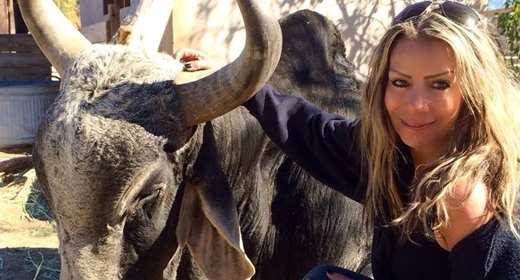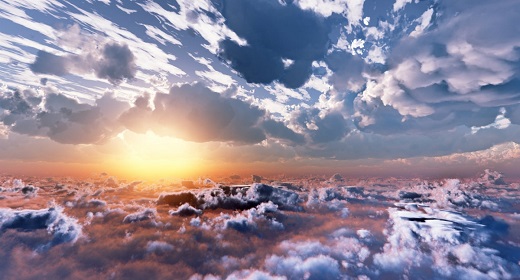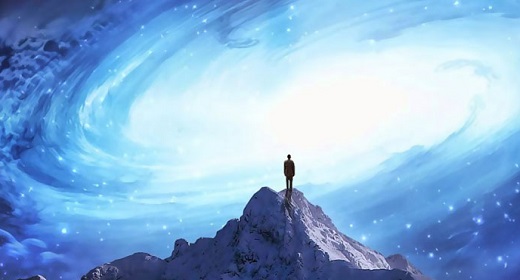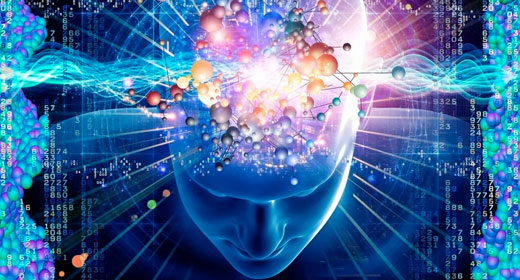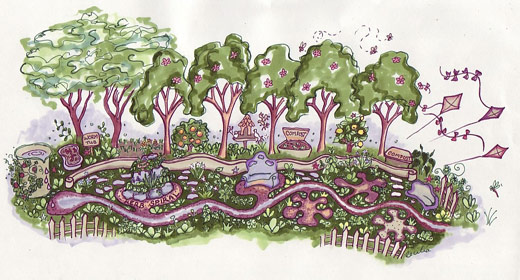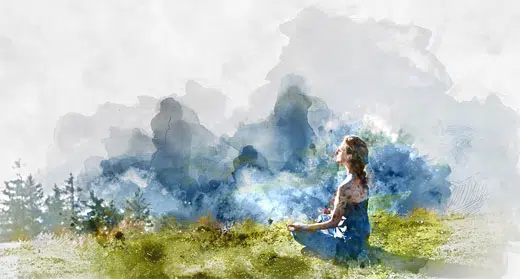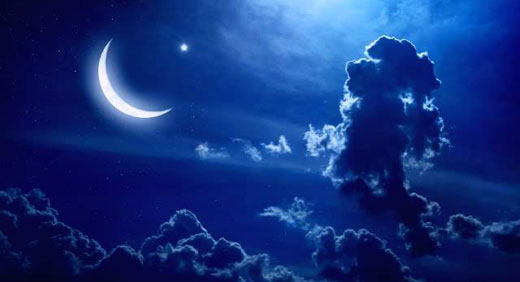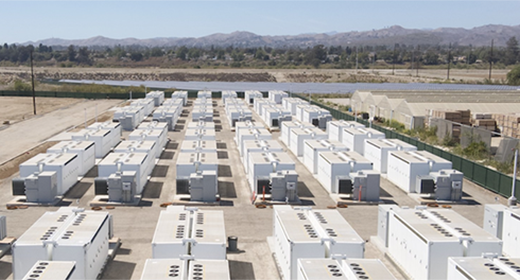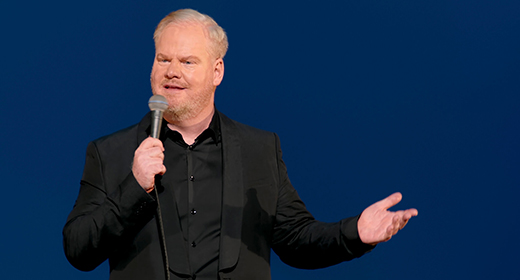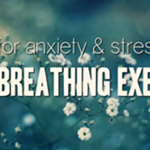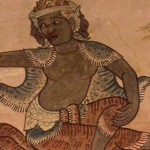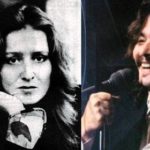by Roger Lipsey: Hammarskjöld, Havel, Mandela, Thunberg…
Greta Thunberg was somewhere in the Atlantic Ocean on a rough day—high winds, high waves. She was traveling from Europe to North America by the only means she could accept, a carbon-neutral sailing vessel. She was famous, her mission had already reached millions worldwide. And, as a daily practice, she was recording her thoughts on a smartphone. Wind and waves were roaring around her. “I miss home,” she said. “I miss having a regular life with routines. And the dogs…. There is a lot of water coming in here…. It is such a responsibility. I don’t want to have to do this. It is too much for me…. I know that this is important and what is at stake. But it’s such a responsibility.”1
What I heard in those words was an echo from long ago in the Gospel of Matthew (26:39), where Jesus at Gethsemani yearns to be spared what he knows to lie ahead. “He … fell on his face, and prayed, saying, O my Father, if it be possible, let this cup pass from me: nevertheless not as I will, but as thou wilt.” I thought also of the prophet Jeremiah, who could scarcely endure the task he was given. Do you remember his lament?: “If I say, ‘I will not mention [the Lord], or speak any more in His name,’ there is in my heart as it were a burning fire shut up in my bones, and I am weary with holding it in, and I cannot.” (Jeremiah 20:9) Of course I am not comparing young Greta to Jeremiah or Jesus, but I am indeed taking note of an inevitable moment in the lives of those who strive intensely to better the human condition, who turn against and for their fellow human beings—rare individuals to whom one cannot help but listen because they speak both from hard truth and from great love. They risk everything.
Is a prophet even possible now? Are there or have there been prophets among us whom we refrain from identifying as such, as if the word and the memories it stirs belong to an obsolete world? We speak of them otherwise: they are activists, dissidents, leaders of faith or racial communities, or persons of high position who stand out by their independence, courage, and moral authority. We seem to have lost the word—but have we lost the person? Can there be prophets without robes and staffs, men and women who fully embody the archetype without a trace of the ancient glamour, and who have no need of that glamour? Consider the lives and works of four such persons of our time, each exemplary, each powerful, each facing specific challenges in their time and place. I’m speaking of Dag Hammarskjöld, Václav Havel, Nelson Mandela, and Greta Thunberg.
Today and always, the prophet confronts a dark object, a menacing, enigmatic, obdurate reality affecting the entire community. How to grasp that dark object? Where are the handholds? What approach would permit one to slow the dark object, to interrogate it, to bring it to light, to dispel and transform its menace? Dag Hammarskjöld, second secretary-general of the United Nations in the years 1953 through 1961, faced a world split by Cold War between nuclear-armed adversaries, shaken by the uneasy process of decolonization and nation-building, by “fires all around the horizon,” as he once said. Václav Havel, with meticulous intelligence, defied the totalitarian Czech regime, spent more than five years in its prisons, and ultimately led the “Velvet Revolution” from which he emerged as the first president of a nation that reclaimed its democratic heritage. Nelson Mandela spent more than twenty-seven years as a political prisoner of the South African apartheid regime, only to emerge as the necessary voice, the necessary mind to negotiate at last, and to serve as the first president of the nonracial inclusive democracy for which he and his comrades had undergone nearly unimaginable hardships. And Greta Thunberg, familiar to us all: the leader of a global youth movement she could not have imagined when she first sat down alone to begin her school strike for the climate. The maturity, clarity, and moral force of her voice and person have shocked the world. Each of these individuals has demonstrated the force and authority of a prophet; each has proved able to speak, to act, to convert their vision into words that carry far.

Mr. Hammarskjöld may seem at first glance the least likely candidate for recognition as a prophet of our time. By his own admission he was “cast in a European mold of understatement”—so he put it.2 Prodded by a friendly American journalist, he went on to say of himself: “I do not wish to use, ever, one word that to my friends, or to myself, would sound false. A colorless sort of prophet, maybe.”3 Working at the summit of world diplomacy, he not only practiced discretion but had thought deeply, and with due irony, about why discretion is necessary. “While performing the part which is truly ours,” he wrote in his private journal, later published as Markings, “how exhausting it is to be obliged to play a role which is not ours: the person you must really be in order to fulfill your task, you must not appear to others to be, in order to be allowed by them to fulfill it. How exhausting—but unavoidable, since mankind has laid down once and for all the organized rules for social behavior.”4 Obviously we are speaking of a subtle soul.
One of the essential offerings of the prophet, ancient and modern, is a vision both of what could be—what would be for the best in keeping with sound ideals—and what prevents its realization. Hammarskjöld was formidable in his ability to project the ideals and psychology of peaceful, equitable global community while making clear what stands in the way. “Mankind united in peaceful competition,” he once said, “free from fear and free from want, a mankind where man has truly come into his own—this great dream is exacting. It may demand great sacrifices. But it deserves the deepest loyalty…. Short of our unreserved devotion it will remain a dream, lacking substance. If this is not recognized, it may even blind us to reality—and become a danger, though it should be a source of strength.” Earlier that day, nearly Christmas 1955, he had added a further warning: “There is progress,” he said, “but it is very slow…. You will certainly hear me preach very many more sermons before I have converted those I want to convert, if I ever do it. I am quite sure that if I do not convert them, events will.”5 Modern words, an ancient prophetic message.
Two more points about Dag Hammarskjöld, who almost certainly saved the world from two devastating world wars. He was a deeply religious man, a man in quest, with an inner life of reflection, prayer, and discovery. His primary teacher was Meister Eckhart, the 13th-14th century Christian teacher—Hammarskjöld reached that far for inspiration, as if Eckhart were a contemporary, an older, respected companion. Between Eckhart’s teachings and the immense demands of his working life, Hammarskjöld found his place. “The best and most wonderful thing that can happen to you in this life,” he once quoted from Eckhart, “is that you should be silent and let God work and speak.” But he went on at once, in his journal, to recognize the challenge facing him as a peacemaker in a world that does not love peace enough. He was addressing his God: “Long ago you gripped me…. Now into your storm. Now toward your target.”6 These are the words and attitude of a prophet—modern or ancient, it hardly makes a difference. Isaiah said as much: “I heard the voice of the Lord, saying, Whom shall I send, and who will go for us? Then said I, Here am I; send me.” (Isaiah 6:8)
I can’t set aside our brief exploration of Dag Hammarskjöld as a prophet of our time—infinitely sophisticated, infinitely engaged—without referring to his death as a martyr in the quest for peace in an air crash in central Africa, September 1961. For decades dismissed as an accident due to pilot error, in recent years it has become evident that his flight was shot down by persons still unknown, for motives surmised but not yet documented. Prophets risk everything.

Václav Havel died just eleven years ago. It seems much longer. A greater mystery than how we remember is how we forget. A most effective, eloquent soul passes through, shares a compelling vision, achieves major social change—and then fades from memory as if what he offered was too demanding, beyond the range of our hearing, too high, too low, too something. This has been by and large Havel’s fate, fantastically undeserved. He was a man moved by conscience in the face of a remorseless regime, a practical negotiator and politician—and a man of vision reaching past his immediate circumstances to the world’s larger needs.
I can’t tell you the freshness I experience when I read Havel now and immerse in his perspective and values, as if a truly conscious man has surveyed the length and breadth of life in our time and made sense of it. Sense of a rigorous kind: he calls on individuals and nations to recognize in depth what is needed if we are not to commit what he once called “megasuicide.” A force in society, a prophet who would have smiled dismissively at any such suggestion, he began as an incredibly insightful critic of the Czech communist regime through essays first published in the underground samizdat network. His essays of the mid-1970s—“The Power of the Powerless” and “An Open Letter to Mr. Husák,” who was president of what passed for the republic—are masterworks of political, social, and psychological analysis. At the same level of unsparing insight as Machiavelli’s writings, but differently directed. The next stage was the formation with others of Charter 77, a dissident movement that called on the Czech regime to abide by its own constitution and international agreements. There are extraordinary writings associated with Charter 77, not least those of the elderly philosopher Jan Patočka, who had long been an inspiration for Havel. “Patočka used to say,” Havel would recall, “that the most interesting thing about responsibility is that we carry it with us everywhere.”7
And the next step was prison—multiple sentences, the longest between 1979 and 1983, the last ending just months before he was elected president of Czechoslovakia in 1989. Assigned in prison, among other things, to an ironworks squad, and when that was more than his health could tolerate, to the laundry squad washing the sheets of hundreds of men, he survived externally and internally dedicated his time to thinking out and writing a weekly letter to his wife, Olga. The language of those letters is often complex, designed to bore the prison warden who censored prisoner correspondence. Later published as Letters to Olga, they allow us to accompany a man coming to a new, integrated understanding of truly remarkable scope. As too often in this life and others, imprisonment was an agent of transformation because the alternative was living death, capitulation.
Like the prophets before him, Havel was captured in obedience—not to a traditional God but to a presence that he experienced at the edge of his life and in its depths, breathing toward him, as he said, when he acted in keeping with it. He called it Being. He spoke of the absolute horizon of Being toward which our lives look and of what he called the memory of Being, “a kind of total registration of everything” that occasions not only a last, objective judgment but judgments and corrective remorse along the way. “One thing seems certain to me,” he wrote in a letter of 1982, “our ‘I’—to the extent that it has not been entirely successful in suppressing its orientation toward Being, and becoming completely absorbed in its existence-in-the-world—has a sense of responsibility purely and simply because it relates intrinsically to Being as that in which it feels the only coherence, meaning, and the somehow inevitable ‘clarification’ of everything that exists, because it relates and aspires toward Being with all its being, because it hears within and around itself the ‘voice’ in which this Being addresses and calls out to it, because in that voice it recognizes its own origin and its purpose, its true relevance and its true responsibility, and because it takes this voice more seriously than anything else.”8
From the bottom of a well, even in broad daylight, one can see the stars; so also from prison one can sometimes see the stars. I do regard Václav Havel as the true heir of Dag Hammarskjöld: both were unreservedly engaged in lives of service and yet acutely aware of another dimension of experience, for Hammarskjöld an encounter with God and His laws and will, for Havel an encounter with Being and its laws and will. Such knowledge, hidden in a soul, is effective. Havel was now prepared for what lay ahead.
There isn’t time here to recount and explore his political fortunes: the nearly bloodless revolution of 1989 led by his organization, Civic Forum; his first presidency, of united Czechoslovakia; his long tenure as the elected president of the Czech Republic; and his rapid emergence as a world figure. But we should taste something of his thought as he addressed audiences worldwide—for example, in words offered to a joint session of the United States Congress in February 1990, a rare event reserved for rare moments and people. The prisoner looking from his cell to the horizon of Being had become a sturdy prophet calling out to his fellow human beings with simplicity and uncompromising honesty. Here is in part what he said on that occasion to American political leaders, many of whom would never have thought or felt anything like what he said:
The salvation of this human world lies nowhere else than in the human heart, in the human power to reflect, in human modesty, and in human responsibility. Without a global revolution in the sphere of human consciousness, nothing will change for the better in the sphere of our Being as humans, and the catastrophe toward which this world is headed, whether it be ecological, social, demographic, or a general breakdown of civilization, will be unavoidable…. Interests of all kinds—personal, selfish, state, national, group, and, if you like, company interests—still considerably outweigh genuinely common and global interests…. We are still destroying the planet that was entrusted to us…. We still don’t know how to put morality ahead of politics, science and economics. We are still incapable of understanding that the only genuine core of all our actions—if they are to be moral—is responsibility. Responsibility to something higher than my family, my country, my firm, my success. Responsibility to the order of Being, where all our actions are indelibly recorded and where, and only where, they will be properly judged. The interpreter or mediator between us and this higher authority is what is traditionally referred to as human conscience. If I subordinate my political behavior to this imperative, I can’t go far wrong. If, on the contrary, I am not guided by this voice, not even ten presidential schools with two thousand of the best political scientists in the world could help me.9
We really do need to recover Havel, a prophet without robe and staff, a prophet with a taste for pubs and rock music, a prophet fiercely genuine. Because he was, and remains, so close to us in time and style, we may not notice that he was a prophet.

Nelson Mandela, who left us in 2013, has justly made a permanent mark on the world. The degree of self-sacrifice he willingly undertook with his fellow political prisoners—twenty-seven years of imprisonment, the earlier years brutal—can never be fully understood. It can only be acknowledged. Mandela’s autobiography, Long Walk to Freedom, is one of the necessary books of our time.10 He, too, in his first address after his release from prison, 11 February 1990, disavowed any notion of prophetic mission. “I greet you all,” he said, “in the name of peace, democracy, and freedom for all. I stand here before you not as a prophet but as a humble servant of you, the people…. I … place the remaining years of my life in your hands.”11 But many did consider him a prophet, even a saintly prophet of a new era in the life of South Africa and in the world at large, which had been combating the racist regime in South Africa for many years through the United Nations and many other vehicles.
I wouldn’t trust myself to briefly characterize the apartheid regime—but we can trust Archbishop Desmond Tutu, Mandela’s indispensable ally during his imprisonment and in the years after. I quote from the archbishop’s lecture on the occasion of accepting the Nobel Peace Prize, 1984, when Mandela and his closest companions remained silenced prisoners of conscience. “Blacks are expected,” he said, “to exercise their political ambitions in unviable, poverty-stricken, arid, Bantustan homelands, ghettoes of misery, inexhaustible reservoirs of cheap black labor, stripped of their South African citizenship and … turned into aliens in the land of their birth. This is apartheid’s final solution…. Apartheid has ensured that God’s children, just because they are black, should be treated as if they were things….”12
When Mandela began his long imprisonment in 1964, he was in the words of Archbishop Tutu, an “angry young man”13 — tall, physically strong, fond of boxing for exercise, of royal lineage among his Xhosa people, willing in the extremity of the struggle against apartheid to organize and lead a subset of his party, the African National Congress, in a campaign of violent sabotage. The man who was released in 1990 and who became the acknowledged father of his renewed nation, was fundamentally different. As he said of himself, he had come to maturity. He had understood that the choices facing South Africa were civil war and state failure or sitting down to negotiate with the enemy. The choices were hatred without end or a rigorous process of dialogue, forgiveness, and justice toward a new beginning. Mandela’s firm concept of the new South Africa held everything—well, nearly everything—in place for what remained of his life. And he himself—his good will, his intelligence, his touchstone presence that gave hope to millions—deservedly became an icon. His immense self-sacrifice and suffering, his inner migration from anger to surpassing political wisdom, his radiant, contagious goodness in the later years, trace a new prophetic path. May the people of the Republic of South Africa remember and never forget.
A few years ago I visited Cape Town as a lecturer in a United Nations program, and toured the city and region for a day with a local guide, a lovely man with whom I enjoyed a meal at a restaurant in the central city. There were people of all colors around us, black, white, in-between, dining, serving, moving about. I asked my guide whether this would have been possible under apartheid—it was so natural, so normal. Of course not! He said with surprising vehemence; we owe this to Mandela.
There is little time now to speak of Greta Thunberg, but fortunately we all know of her, all have heard her. At perhaps the finest moment so far in this young life, infinitely promising for the future, she spoke in September 2019 to the United Nations Climate Action Summit. “This is all wrong,” she said. “I shouldn’t be standing here. I should be back in school on the other side of the ocean. Yet you all come to me for hope? How dare you! You have stolen my dreams and my childhood with your empty words. And yet I’m one of the lucky ones. People are suffering. People are dying. Entire ecosystems are collapsing. We are in the beginning of a mass extinction. And all you can talk about is money and fairytales of eternal economic growth. How dare you! … You are failing us. But the young people are starting to understand your betrayal. The eyes of all future generations are upon you. And if you choose to fail us I say we will never forgive you…. The world is waking up. And change is coming, whether you like it or not.”14
The arrival of such a person, such a voice, in our world suggests that there is still Providence, that the Lord hasn’t quite lost interest in us, though it would be perfectly understandable if He were to withdraw. Before all of the prophets, facing the prophets ancient and modern, our urgent collective task is to hear and respond. “They say to the seers: See not!” This is Isaiah speaking. “And to prophets: Prophecy not to us what is right! Speak to us smooth things, Prophecy illusions!” (Isaiah 30:10-11) Greta Thunberg has not prophesied smooth things.
These are prophets: Hammarskjöld, Havel, Mandela, Thunberg. There are others. But haven’t these four shown us enough to know that the prophetic task is not wholly lost and worn through in our time? I am certain that they all would hear with gratitude, as if they had at last been understood, the words with which it occurs to me to conclude—words of Antoine de Saint-Exupéry: “Il serait tout de même temps de naître.”15 (“All the same, it must be time to be born.”) ◆
This essay was originally given as a talk during the Third World Congress of Transdisciplinarity, an online forum meeting throughout 2021. About the prophetic tradition, Abraham Joshua Heschel’s The Prophets remains a key resource (consulted in the two-volume edition published by Henrickson [Peabody MA], 1975).
1 “I am Greta,” BBC film, at point 1 hour 23 minutes approximately.
2 Roger Lipsey, Hammarskjöld: A Life (Ann Arbor: University of Michigan Press, 1913)), 163.
3 Life, 163.
4 Life, 609.
5 Life, 239.
6 Life, 322.
7 Václav Havel, “The Power of the Powerless” in Open Letters: Selected Writings 1965–1990 (New York: Knopf, 1991), 195.
8 Václav Havel, Letters to Olga: June 1979 – September 1982 (New York: Knopf, 1988), 346.
9 Václav Havel, “A Joint Session of the U. S. Congress, Washington, D. C., February 21, 1990,” in The Art of the Impossible: Politics as Morality in Practice (New York: Fromm International, 1998), 18-19.
10 Nelson Mandela, Long Walk to Freedom (London: Little, Brown, 1994, with other editions available).
11 Nelson Mandela, “Mandela’s Address After His Release From Prison, February 11, 1990,” in Selected Speeches and Writings of Nelson Mandela (St. Petersburg FLA: Red and Black Publishers, 2010), 137.
12 Desmond Tutu, Nobel Peace Prize acceptance speech, available online at https://www.nobelprize.org/prizes/peace/1984/tutu/acceptance-speech/.
13 Archbishop Desmond Tutu, Introduction to Mandela: The Authorized Portrait (Kansas City: Andrew McMeel Publishing, 2006), 7.
14 Greta Thunberg, “How dare you!” Available online as videos and as text at https://www.theguardian.com/commentisfree/2019/sep/23/world-leaders-generation-climate-breakdown-greta-thunberg.

